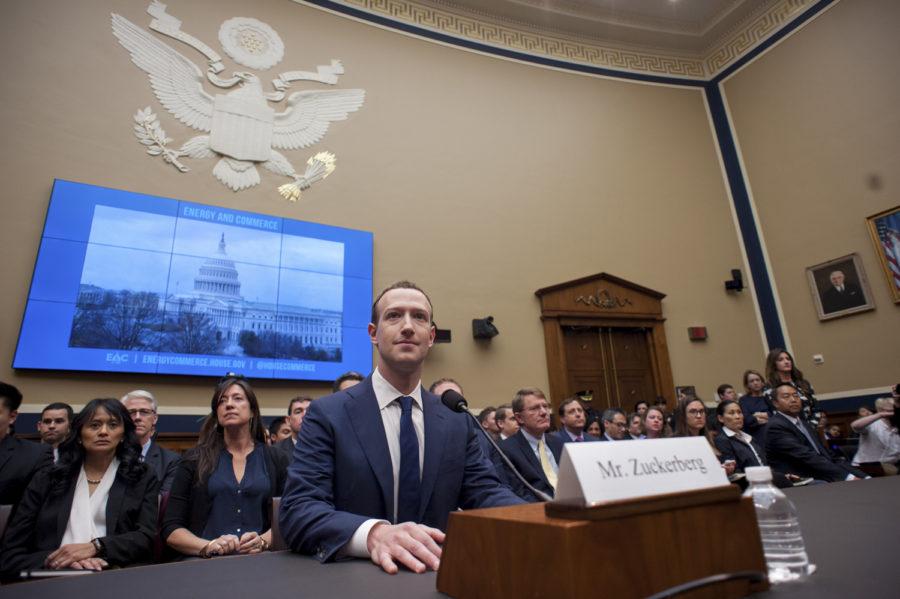Nearly two-thirds of adults in America use social media today — and for good reason. It provides us with news and information, connects us to our friends and gives us a platform to share tidbits of our lives — but access to such open sites puts our privacy at risk.
Facebook CEO Mark Zuckerberg testified in front of Congress about this very issue Tuesday and Wednesday when he admitted Cambridge Analytica, a political consulting firm supporting Donald Trump in the 2016 presidential election, harvested the profiles of at least 87 million Facebook users through an app called “This is your Digital Life.” Zuckerberg failed to notify the Federal Trade Commision about the security breach, saying he thought Cambridge Analytica had already deleted the information at his request.
But this scandal is nothing new. During the hearing, Sen. Richard Blumenthal, D-Conn., held up a placard showing three previous times Zuckerberg had to apologize for a data breach. And Facebook has come under fire many times for not clearly explaining how the data it collects is used. But Congress’ hours-long grilling sessions didn’t pinpoint problems or offer solutions that might prevent data breaches or illegal data sharing. Following suit, Zuckerberg didn’t seem to know much about regulative policy for tech industries either.
Sen. Ted Cruz, R-Texas, repeatedly accused Zuckerberg of bias against conservative Facebook pages, saying they’re more likely to be censored than left-leaning ones. Another Republican, Sen. John Kennedy of Louisiana, even told Zuckerberg his “user agreement sucks.”
This kind of petty political sparring won’t solve transparency issues for Americans using social media. Instead, lawmakers need to ask specific questions about Facebook’s data policy — a policy that every user must agree to when they sign up to use Facebook.
“[Data collection] includes information about the websites and apps you visit, your use of our services on those websites and apps, as well as information the developer or publisher of the app or website provides to you or us,” the policy reads.
This kind of policy isn’t unique to Facebook — many other companies, such as Netflix and Spotify, routinely mine data to market people’s information. But allowing an outside corporation like Cambridge Analytica to access Facebook data and exploit it for political gain pushes the boundaries of what is acceptable in online information sharing.
While this particular hearing didn’t help solve Facebook’s privacy issue at all, holding hearings like this one is a real start to forming regulation on online data sharing — and as the internet becomes more important in everyone’s lives, regulation seems unavoidable.
Senators are some of the American people’s highest delegates, so it’s their responsibility to create policy that benefits the American people. If elected officials actually care about protecting the people they represent, they’ll educate themselves about technology and work with tech experts like Zuckerberg to limit data sharing damage.
But smart governmental policy can’t make up for naive social media users. If individuals truly want to protect themselves from data mining, they need to start with their own profiles and restrict the amount of personal info they broadcast to the public by checking their privacy settings — yes, they’ve likely changed since the last time you looked.



